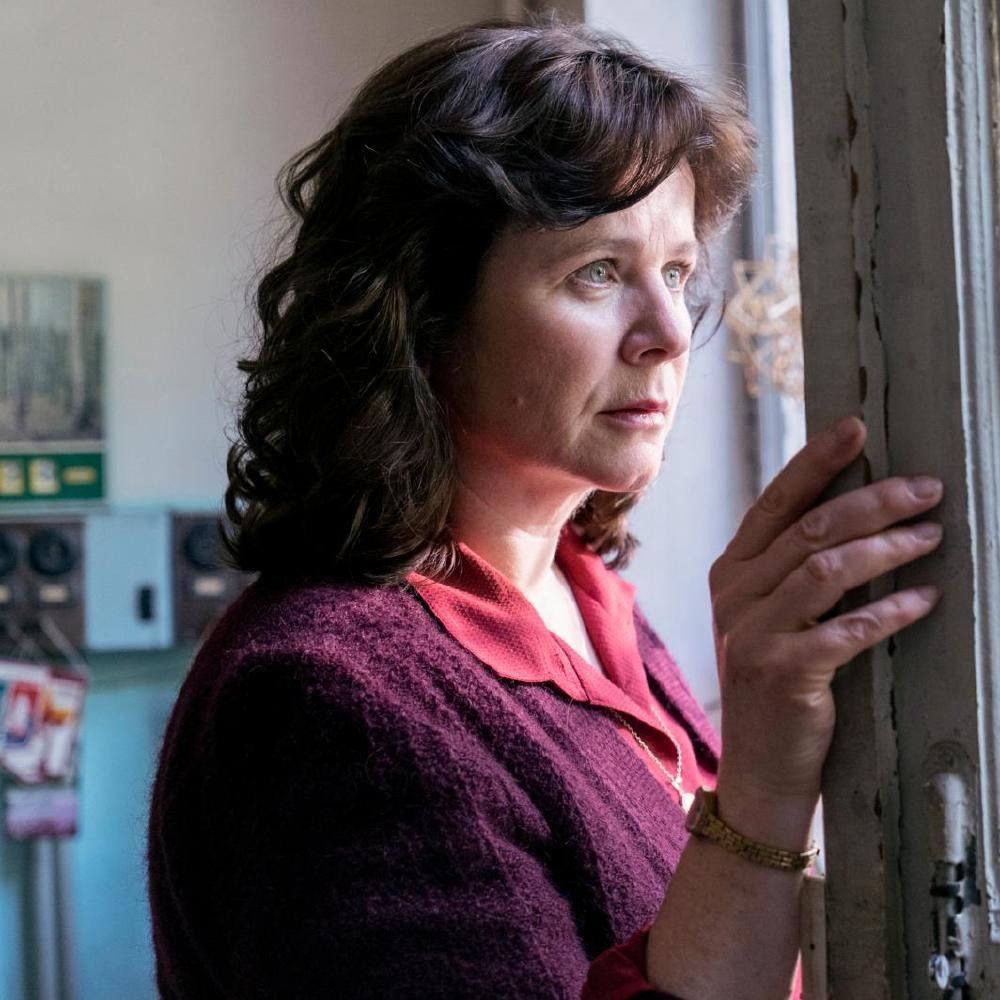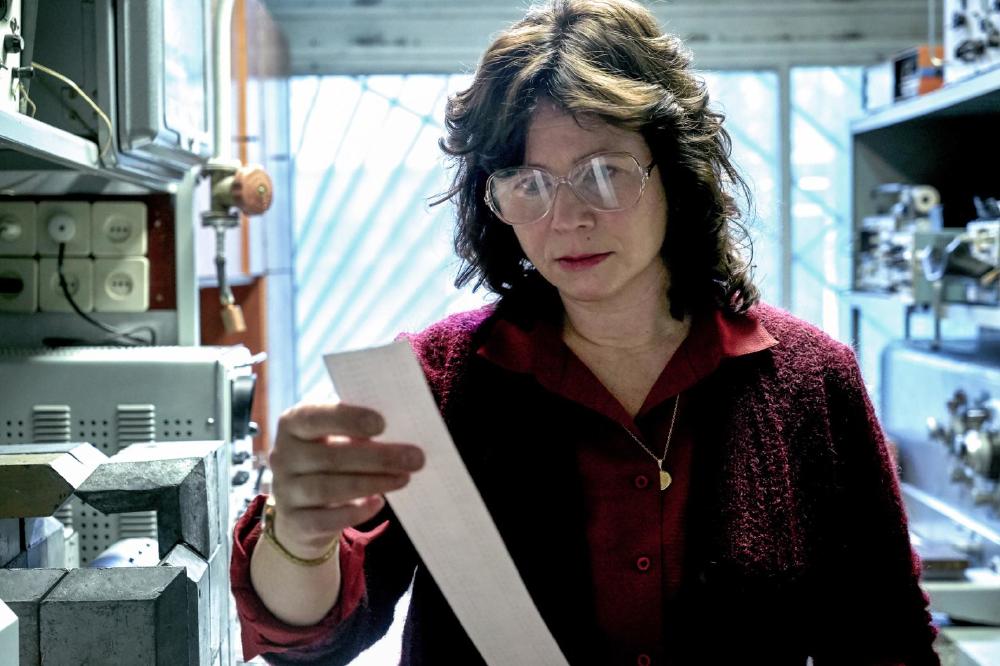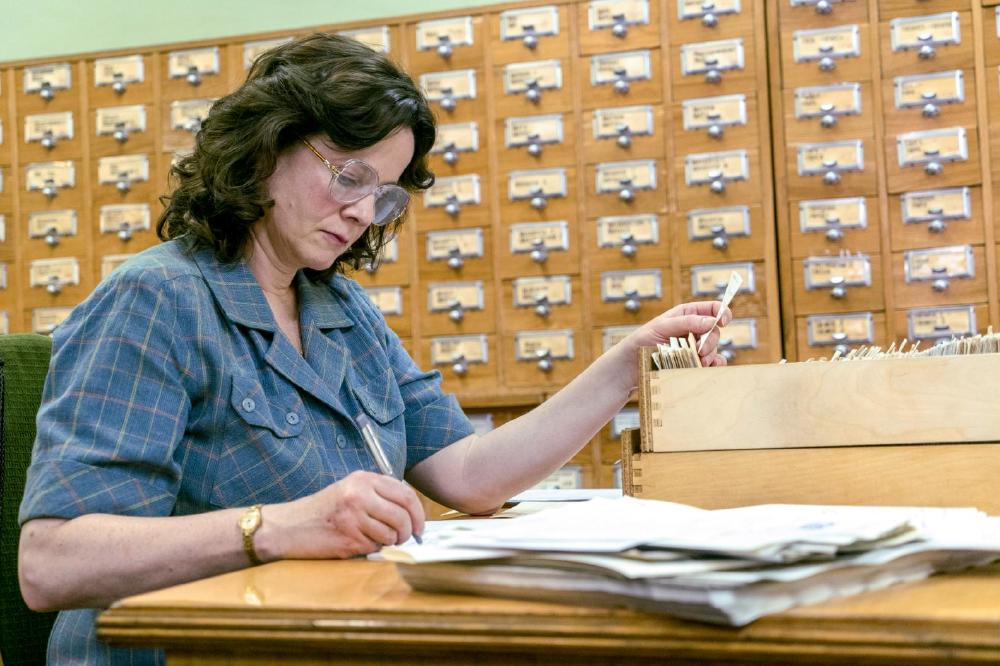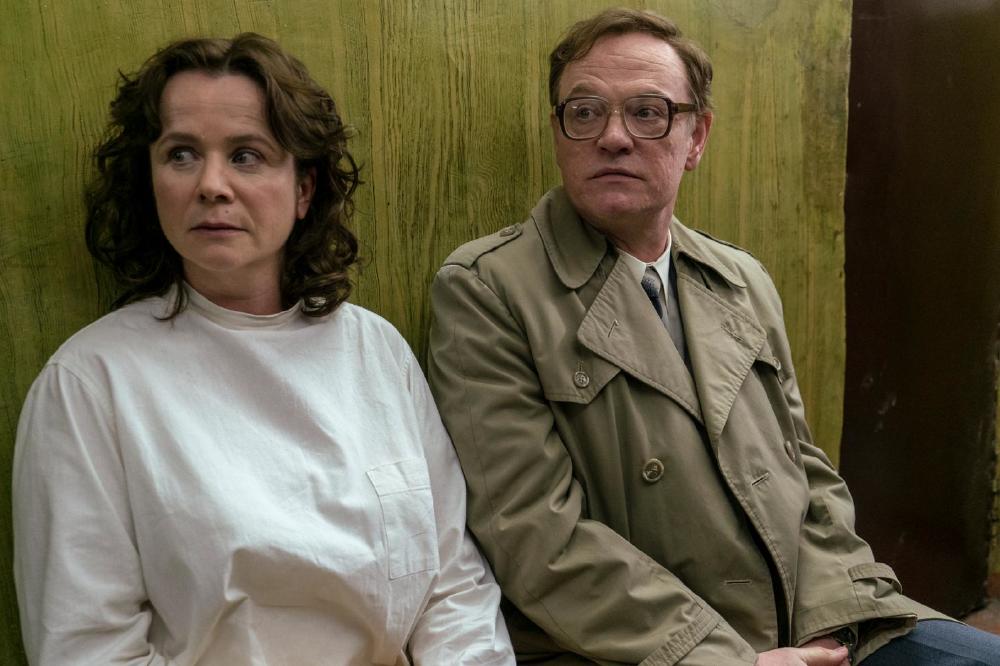Emily Watson has admitted she can't stand watching herself on screen, but that concern was cast to one side for her latest role in Sky Atlantic's powerful drama, Chernobyl.

Emily Watson in Chernobyl
Academy award nominee Watson delivers a powerful performance, taking on the role of nuclear physicist Ulyana Khomyuk, and starring alongside Jared Harris (portraying Valery Legasov) and Stellan Skarsgård (portraying Borys Shcherbyna), in a story the recounts how close the world came to a disaster that could have changed Eastern Europe forever after an accident at the Russian nuclear plant in Chernobyl, in April 1986.

Telling a tale that sheds chilling light on a nuclear calamity the Soviet state was keen to cover up - until they belatedly appreciated the gravity of what was about to unfold - this is a drama that sheds light on one of the more significant stories of this generation.
As Watson sat down for an chat with Female First in London, the engaging actress who made her breakthrough in Breaking The Waves alongside Skarsgard in 1986 admits her concerns for her own appearance mattered little as she attempted to do justice to her the heroic character she plays in a drama that is certain to be in the mix when the awards season rolls around.
"I hate seeing myself on screen and would rather look at anything else, but that was not an issue in this role as it was so important to tell this story in the right way," Watson told us. "We can't worry about how we look on camera in Chernobyl as the director and producer wanted it dimly lit and for it to be real.
"The story is what matters here rather than the actors and we had to just go with that. I hate looking at myself on screen at the best of times, but without too much make-up and looking as I do in this is not fun to watch, but I'm happy with the final story and what it tells. This was not a moment to worry about how many double chins we have got and I would happily slip to a restaurant to avoid a screening, but I think a lot of actors are like that.
"What I hope we have achieved with Chernobyl is a drama that will tell a story that needs to be told. This is something quite incredible and but for the intervention of a few brave people, the outcome could have been catastrophic."
Watson admitted she needed to get to grips with the complex realities of nuclear science before filming Chernobyl in Lithuania, as she concedes this production is well timed amid the rise in profile of concerns about the future of the world amid climate change.

"This is a story for our time," she continues. "The amount of denial that went on around this story as they were trying to protect their jobs and deny reality when they are 48 hours away from Armageddon is scary.
"We should ask now whether some people in Washington are denying climate change just because they want a new swimming pool or a new fast car? It is a frightening thought, but it might just be reality.
"I have gone on climate marches with my kids and appreciate that this is the biggest threat facing the world now and in the very near future. We need to change in the next few years or this world could end. Hopefully someone in power appreciates that sooner rather than later."
Watson is among those leading the way in a female revolution that has changed the face of film and television in recent years and she believes the barriers that were blocking women from landing lead roles in big-budget productions have been broken down amid the #MeToo movement of recent years.
"I remember the days when we had the opening of a weekend movie and the success was judged on the amount of money it needed to make to be considered a hit," she added. "Once someone hit that target, they were bankable and got the next job that came along. It was a very simple formula.

"Those people getting the jobs tended to be men and women were never considered. That's why men have always been paid more, but there is now a realisation that we don't all have to look like Bruce Willis to make a TV show or a movie successful.
"The changing nature of how we consume everything has changed and there is a huge appetite for change. Now there is space for everything to be diverse and the formulas we used to work to are no longer there."
Chernobyl airs on Tuesday May 7 on Sky Atlantic and streaming service NOW TV at 9pm.
Words by Kevin Palmer, who you can follow on Twitter @RealKevinPalmer.
Tagged in Emily Watson

